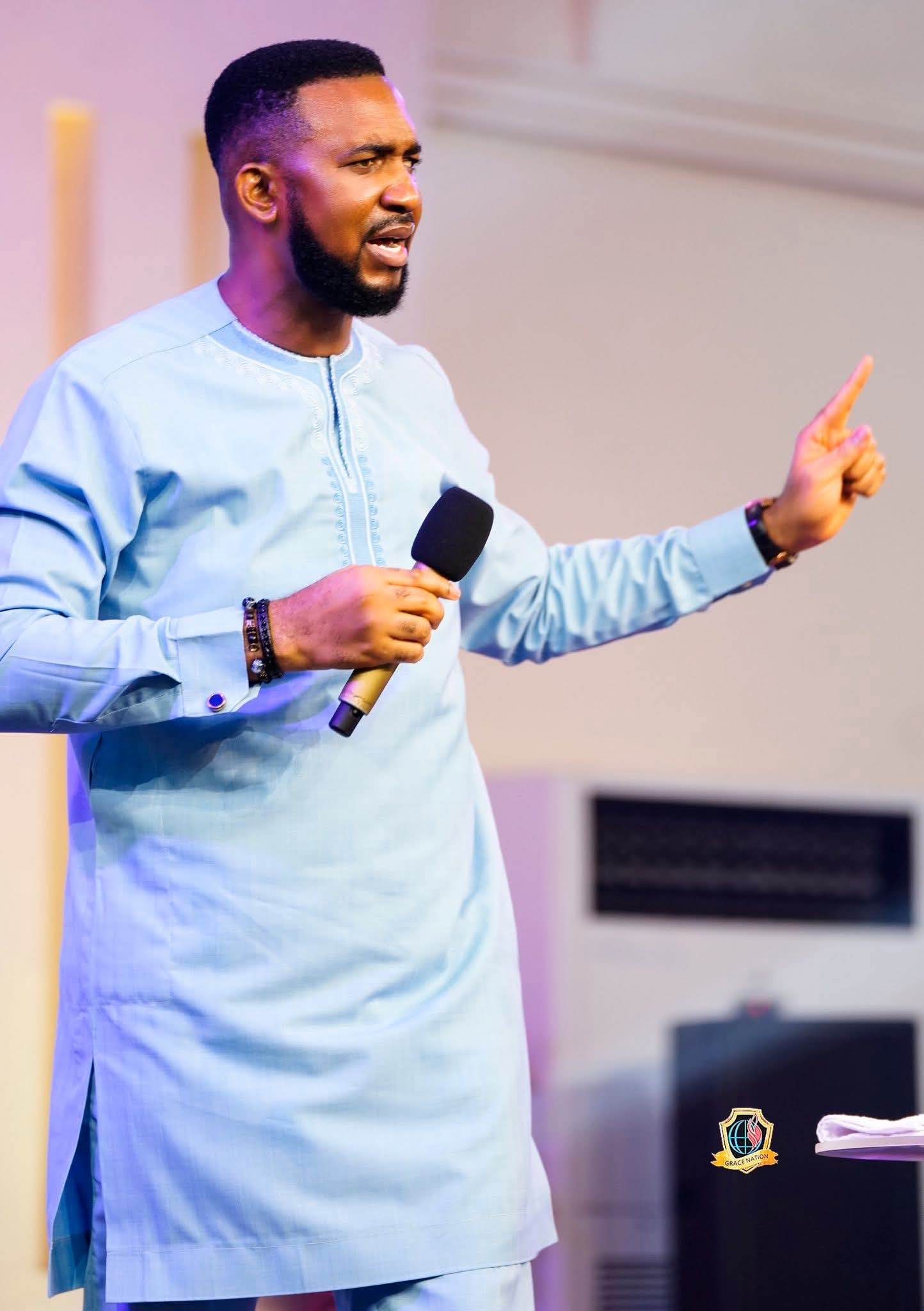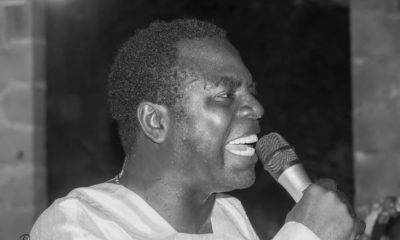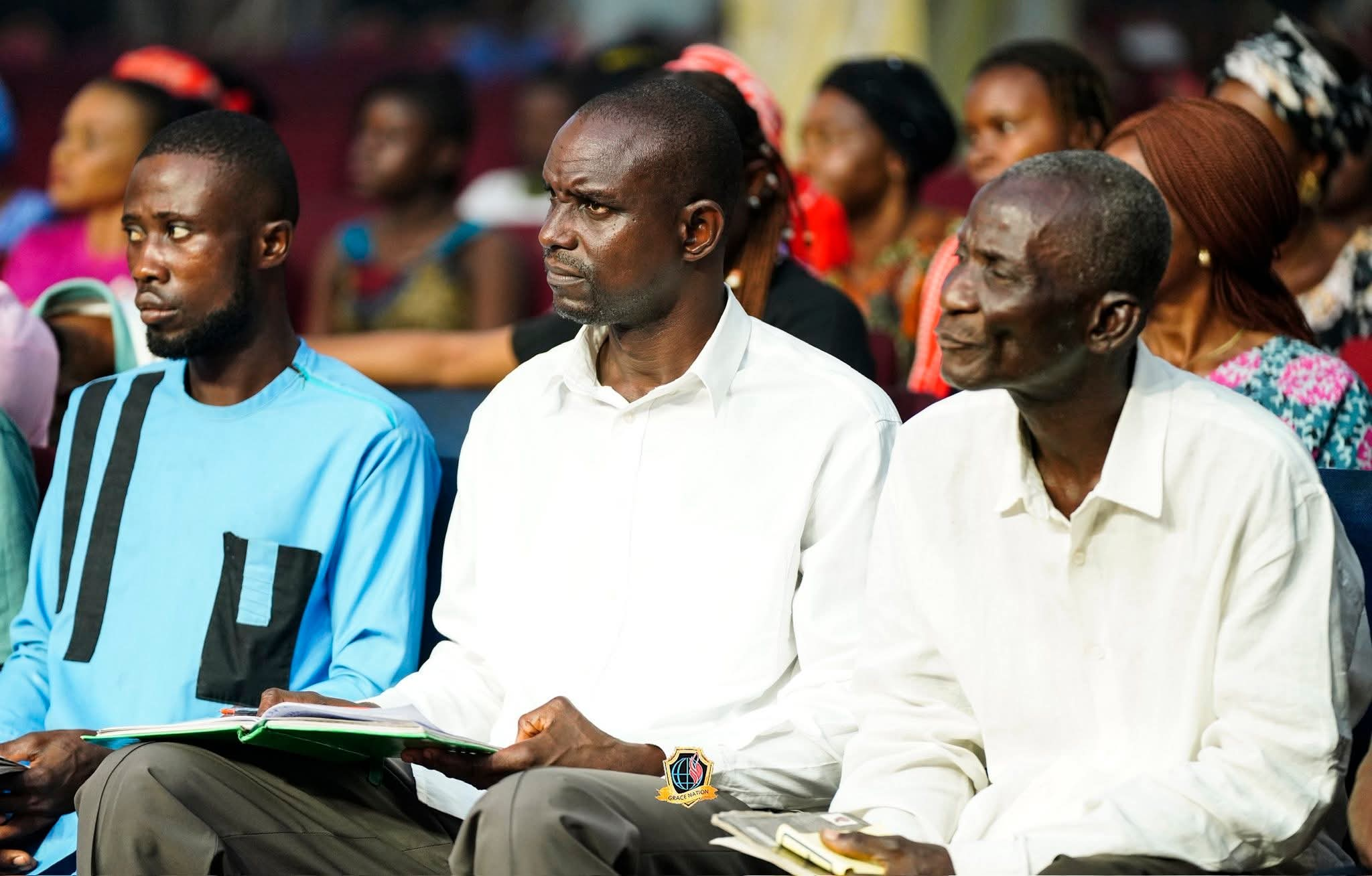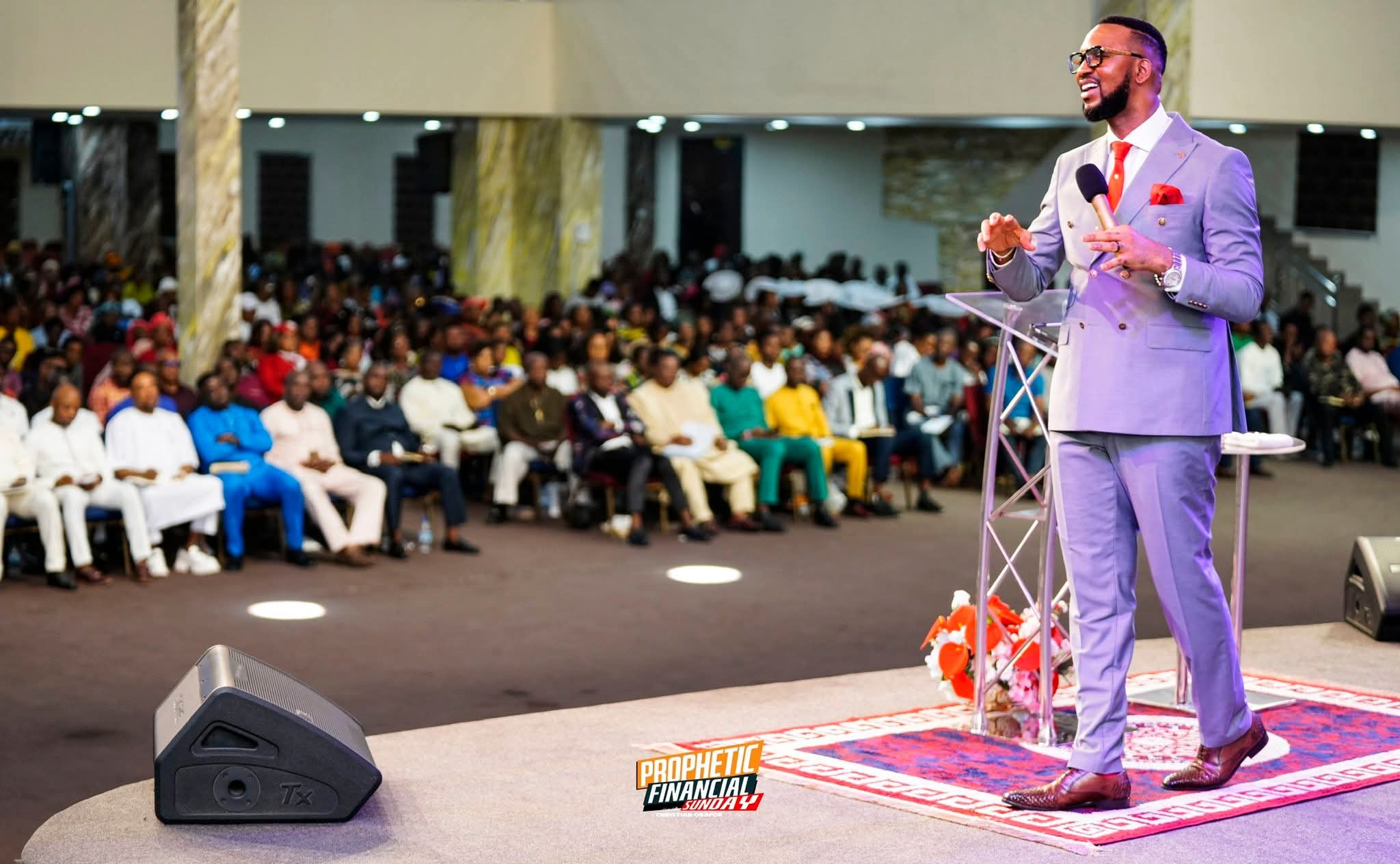celebrity radar - gossips
China to Lagos, the frightening timeline of a deadly virus
By Olusegun Fafore
Fatality rate across the globe since the outbreak of Coronavirus (COVID-19) in the Chinese town of Wuhan on December 31, 2019 has signalled that this is not the best of times for humanity. With about 8, 988 deaths and 220,877 people infected in 176 countries since the first death was recorded in China on January 11, 2020, the pandemic has boisterously announced its immensity.
Frighteningly, the virus claims human lives daily while science is still struggles with an absolute response to the scourge. More than before, humanity has become vulnerable, and at the mercy of government policies. From one end of the world to the other, governments and political leaders are facing a whirlwind that is testing their leadership. Leaders are subjected to unusual trials and are desperate for solution(s).
In search of safety from the grip of the easily transmittable coronamicrobe, man is turning to the State for actions that will stem the tide, and provide succour at this difficult period. Sadly, no nation is capable of shielding the other. The ravaging disease does not regard the medically and scientifically advanced nations in its manifestation, so it is every nation to herself first, hence the increasing instances of border closure and entry restrictions.
To humble humanity and heighten our fears, the epidemic started its cudgelling from the most advanced to the not-so-advanced countries of the world. Nations like China, Italy, USA, Spain, Iran, Germany and France are the worst hit, while African countries like Nigeria, Togo, Somalia and Congo have had minimal impact. Only 12 deaths out of the 590 reported cases have been reported so far in Africa.
It may be safe to argue that the worst-hit countries, with records of deaths in thousands since the outbreak of the deadly disease, are ‘host country’ and ‘high-traffic areas’, but a different perspective will be that China is where the virus originated from, other countries classified as high-traffic areas, are inheritors like Nigeria and other sub-Saharan Africa countries, and should have had lesser impacts as well.
The truth is that danger is looming and humanity is under attack. While the response strategies by Nigeria and some other countries may have contained the spread of the deadly disease, especially in Africa; this terrifying development has justified the need for increased collaboration and support amongst the nations of the world. Humans have to come together to protect their turf.
The hurried spread of Coronavirus across the globe has shown that we are closer than the flight time from one region to the other suggests. People from one continent are just one person away from contingents from other continents. Asians are not far from Africans, so are Australians close to Americans, because there is no distance in human linkage(s).
We now know that the world is one small circle that can be covered in just few days. There is no better authentication of this statement than the number of human victims succumbing to the lethal calls of microbes globally. The fact that a disease starts in a remote part of the world and travels across the hemisphere to other parts in hours proves that we are not as isolated as we had always thought.
Outbreaks of pandemics like HIV/AIDS, Ebola and Coronavirus are compelling enough for us to rethink our humanity. More than wars, epidemics are greater threats to humankind. It is therefore important that global leaders, multilateral agencies and international organisations align on investment in critical health infrastructure and scientific breakthroughs to sustain our reign on planet earth.
Microbes and diseases are interested in our world. These horrible impostors are keen on displacing us in our hundreds, thousands and millions, if we continue to live the way we have always lived and refused to exploit our mutual strengths. For pandemics, the fate of Africa is always a concern to the global health community. This is because of the continent’s history of poor investment in health care and hindered scientific advancement.
The African continent was not known to stand-up to its health challenges, or any global health problems. Until the containment of Ebola outbreak in 2014 when Nigeria offered the best of Africa to the world, no one ever thought that there could be a coordinated response to a pandemic by Africans.
As one of the immediate destinations of the hemorrhagic fever (Ebola) which originated from Liberia when thousands were sick and dying in the West African regions of Guinea, Liberia and Sierra Leone (28, 616 cases and 11, 310 deaths), Lagos was gripped by fear and thrown into panic because of the devastating statistics.
The epidemic claimed the life of Dr. Ameyo Stella Adadevoh, the Lead Consultant Physician and Endocrinologist at a private hospital in Lagos, who remains the heroine of the battle against the Ebola pandemic in Nigeria, but the capacity of the State to speedily deploy resources to contain the spread of the deadly disease and limit casualties to 8 deaths out of the 20 cases was globally commended by the time we defeated the outbreak in September 2014.
Lagos State Government showed the world what Africans could do in times of crisis to forestall a continent-wide spread of dreaded diseases. The promptness and efficiency of the State response system protected Nigeria’s over 22 million population, occupying a landmass of approximately 3345km2 , from the highly infectious disease.
The averted calamity, considering that Lagos population density was 20, 000 per persons per square kilometre in built up areas, would have been colossal. Poor management of the situation would have spelt a total disaster for the country, and perhaps Africa’s over 1.2bn people.
That was a global tragedy contained. Really, such an incident should attract and induce multilateral support, in form of capacity building and investment in health infrastructure in certain areas of the world. Weaknesses or lack of capacity in certain locations in the face of pandemic outbreaks endanger the whole world, no matter how distant anyone may be from the originating country. Before Coronavirus, China was very far, right?
Locations like Lagos are central to global wellbeing and progression of human health agenda for a number reasons. Notable amongst these is that the world cannot afford a weak link in the aggressive campaign for health security and wellbeing.
For a destination with two domestic airports, an international airport and two seaports, which are adjudged to be the largest and busiest on the African continent, a national or subnational government can only do little in combating security, socio-economic and health challenges or threats, when they emerge from the interconnectedness of our world.
Lagos is only exemplary in fighting the scourge of COVID-19 because of deliberate government policy and leadership commitment to quality public health. The Governor, Mr. Babajide Olusola Sanwo-Olu, before the outbreak had taken a strong position that made the State response to the menace adequate.
As Incident Commander, his outlook inspired great confidence in the Lagos State Incident Command Team battling the menace of the deadly disease in Lagos, but would this have been the story if Africa was the origin of this deadly virus?
What would the pressure on Lagos facility and the outcomes of the unanticipated stretch of the State health facility and preparedness for incidents, which have drawn commendations from far and near, especially by the World Health Organisation (WHO) been?
Yes, since the detection of the first case of Coronavirus on February 27, 2020, the Lagos State Governor, Mr. Sanwo-Olu has remained resolute in curbing the spread of the virus and preventing human casualty. But in reality, megacities like Lagos and other densely populated regions in the world require increased global support and collaboration towards improving healthcare and proving world-class facility. This will not only strengthen the State’s capacity to combat situations such as this, but also bolster its ability to provide support for other destination in the region during emergencies.
So far, Governor Sanwo-Olu’s decisions and actions have significantly moderated the possible spread of the microbe and doused fears that Coronavirus could sweep the entire country in matter of days. To manage the situation, Lagos State activated its emergency health management and response framework, embarked on a mass enlightenment campaign about the importance of personal hygiene, closed schools and prohibited public engagements with more than 50 participants at a single location in the State.
Some of these decisions are tough because of the socio-economic texture of Lagos. But indeed, times are hard, and only tough decision could help humans chase microbes off our streets. As social animals, the chances that these aliens will creep into our system are very high, and definite, if we fail to demonstrate a certain level of watchfulness over ourselves. We need to help the response system work by following simple guidelines. When government demonstrates political will, citizens should reciprocate with commitment.
But more importantly, it has become better known that our spaces in the world are shared facilities. Therefore, we need to increase our humanity. Leading nations, global leaders, civil society activists, well-meaning individuals, international organisations and multilateral agencies, need to rethink what our investment priorities should be. The focus of innovation and scientific advancement need to shift to healthcare infrastructure and systems in high population density regions of the world.
Fafore is the Executive Assistant on Public Relations and New Media to the Governor of Lagos State.
celebrity radar - gossips
E‑Money’s Grand Gesture: A Closer Look at the SUV Gift to Chinedu “Aki” Ikedieze

E‑Money’s Grand Gesture: A Closer Look at the SUV Gift to Chinedu “Aki” Ikedieze
By George Omagbemi Sylvester | Published by SaharaWeeklyNG
“Public Generosity, Celebrity Loyalty and the Symbolism of Wealth in Nigeria’s Entertainment Elite.”
On Tuesday, February 17, 2026, Nigerian billionaire and entrepreneur Emeka Okonkwo, widely known as E‑Money, once again captured national attention with a lavish and highly publicised act of generosity, gifting a brand‑new 2024/2025 Ford SUV to veteran Nollywood actor Chinedu Ikedieze, affectionately called Aki, during his high‑profile birthday celebration.
The event, held in Lagos amidst a constellation of entertainers, business figures and socialites, was itself part of an annual tradition in which E‑Money marks his birthday (on February 18) with large‑scale giveaways and spectacular shows of material philanthropy. This year, he announced the gift of over 30 cars to friends, staff and family, a gesture that quickly went viral as videos and images circulated across social media platforms.
In the case of Ikedieze, E‑Money’s gift appeared to be deeply personal. During the festivities, E‑Money stood beside his elder brother, Grammy‑nominated musician KCee and recounted how Ikedieze stood by him at his 2007 wedding. The billionaire explained that the SUV was a “token of appreciation” for the enduring support the actor had shown over the years which is a narrative that blends friendship with public celebration.
Ikedieze, a Nollywood staple with a career spanning more than two decades and over 150 film credits, including the iconic Aki na Ukwa franchise, visibly reacted with humble surprise as he received the vehicle, bowing his head in respect and gratitude. The actor later shared the moment on his Instagram account with a caption celebrating the gift, further fuelling online engagement around the event.
Beyond the spectacle, this incident underscores evolving dynamics in Nigerian celebrity culture and the intersection of wealth, influence and reciprocity. Sociologist Dr. Chinedum Uche of the University of Lagos, speaking on the broader implications of such high‑profile gifts, notes: “Philanthropy that is highly publicised can reinforce social bonds, but it also reflects a culture where generosity is intertwined with reputation economy; where giving becomes as much a social signal as it is an act of kindness.” The quote highlights how public acts of wealth transfer among elites serve layered social functions that extend beyond pure altruism.
Critics of such displays argue that ostentatious giveaways, particularly in a country with stark economic disparities, risk amplifying social envy and exacerbating perceptions of inequality. Economist Dr. Ifunanya Nwosu from the Lagos Business School observes: “In societies marked by economic stratification, celebrity largesse may inspire admiration, but it can also inadvertently highlight structural inequities; prompting questions about systemic investment in public welfare versus individual generosity.”
Still, supporters maintain that E‑Money’s annual tradition (which has in past years included cash gifts to his brother KCee, comedians and even domestic staff) reflects genuine gratitude and a commitment to uplifting his immediate circle, albeit within the private sphere.
For Ikedieze, the SUV stands both as a heartfelt gesture from a longtime friend and a public affirmation of their enduring relationship. As the video of the moment continues to circulate, the broader narrative has ignited discussions about the role of private wealth in public life, celebrity culture and how acts of giving are interpreted in contemporary Nigerian society.
In a landscape where influence and generosity often play out in equal measure on public stages, E‑Money’s gift to Aki is more than a headline, it is a flashpoint in ongoing debates about wealth, friendship and visibility in Nigeria’s entertainment and entrepreneurial ecosystem.
celebrity radar - gossips
Spiritual Reality: Wicked People Are Possessed by Wicked Spirits — Dr. Christian Okafor

Spiritual Reality: Wicked People Are
Possessed by Wicked Spirits — Dr. Christian Okafor
…..“You don’t need to offend them before they attack you.”
…..“Your only true help comes from God.”
Demons are strategic and calculating. They detect threats quickly and position themselves to resist any power that may expose or overpower them.
According to the Generational Prophet and Senior Pastor of Grace Nation Global, Christian Okafor, spiritual intelligence operates both in light and in darkness—and believers must understand this reality.
Dr. Okafor delivered this message on Thursday, February 19, 2026, during the midweek Prophetic, Healing, Deliverance and Solutions Service (PHDS) held at the international headquarters of Grace Nation Worldwide in Ojodu Berger, Lagos, Nigeria.
The Operations of Demons
Teaching on the subject “Spiritual Reality” with the subtitle “Operations of Demons,” the Man of God explained that when demons possess individuals, their behavior changes. Such people may attack, bully, or resist those sent by God to help them, unknowingly rejecting divine assistance and prolonging their struggles.
“You don’t need to offend a demon before it attacks you,” he said. “What you carry is enough to provoke opposition. The greater your potential, the greater the battle.”
Dr. Okafor noted that many believers misinterpret battles as signs that God has abandoned them. However, he explained that some battles are permitted for growth, training, and divine glorification.
According to him, God may allow certain confrontations so that believers understand spiritual warfare and emerge stronger.
“Some battles are necessary,” he emphasized. “They push you into your turning point.”
He further stated that God does not respond to lies, blackmail, or bullying. He responds to His Word. Therefore, opposition is not proof of God’s absence, but often evidence of destiny at work.
The Weapon Against Demonic Attacks
Addressing solutions, Dr. Okafor described prayer as the strongest weapon against satanic operations.
“Prayer is the license that invites God into your battles,” he declared. “God does not intrude—He responds to invitation.”
According to the Apostle of Altars, understanding the principles and discipline of prayer enables believers to receive divine strategies for overcoming demonic resistance. Without prayer, he warned, spiritual help cannot be activated.
“You cannot receive help without God,” he concluded. “And you cannot engage God without prayer.”
Manifestations at the Service
The midweek gathering was marked by a strong move of the Spirit, with testimonies of deliverance, miracles, restoration, and solutions to various challenges presented before God. Several individuals reportedly committed their lives to Christ during the service.
celebrity radar - gossips
Kingdom Advancement: God Does Not Confirm Lies or Gossip — He Confirms His Word .” — Dr. Chris Okafor

Kingdom Advancement: God Does Not Confirm Lies or Gossip—He Confirms His Word
“When Doing Business with God,
People’s Opinions Do Not Count.”
— Dr. Christian Okafor
The greatest investment any Christian can make is partnering with God. According to the Generational Prophet of God and Senior Pastor of Grace Nation Global, Christopher Okafor, when a believer commits to serving and advancing God’s kingdom, no barrier, lie, gossip, or blackmail can prevail against them.
This message was delivered during the Prophetic Financial Sunday Service held on February 15, 2026, at the international headquarters of Grace Nation Worldwide in Ojodu Berger, Lagos, Nigeria.
Doing Business with God
Teaching on the theme “Kingdom Advancement” with the subtitle “Doing Business with God,” Dr. Okafor emphasized that when a believer enters into covenant partnership with God, divine backing becomes inevitable.
“God is still in the business of covenant,” he declared. “When you make a covenant with Him, He honors the terms. When you win souls into the kingdom and remain committed to His work, He rewards you with what you could never achieve by your own strength.”
The Man of God stressed that God does not confirm lies, gossip, or negative narratives—He confirms His Word. Therefore, anyone genuinely committed to kingdom business should not be distracted by public opinion.
“No matter the blackmail or falsehood circulating around you, if you are focused on God’s assignment, those attacks will only strengthen you,” he stated.
He further noted that a believer’s understanding of God’s covenant determines their experience. “Your mentality about God’s covenant becomes your reality. When you truly know the God you serve, no devil can move you.”
Biblical Examples of Kingdom Partnership
Dr. Okafor cited several biblical figures who prospered through their partnership with God:
Abel
Abel served God with sincerity and offered his very best. His sacrifice pleased God, demonstrating that when a master is honored, he responds with favor.
David
David’s heart was fully devoted to God, and in return, God’s presence and favor rested upon him throughout his life.
Hannah
Hannah made a covenant with God, promising that if He blessed her with a child, she would dedicate him to His service. After fulfilling her vow, God rewarded her abundantly, blessing her with additional children.
Peter
Peter, a professional fisherman, surrendered his boat at Jesus’ request for kingdom work. Through that act of partnership and obedience, he experienced supernatural provision and divine elevation.
Conclusion
In closing, Dr. Okafor emphasized that one’s approach to God’s covenant determines the level of success and prosperity experienced. Commitment to kingdom advancement secures divine confirmation and supernatural results.
The Prophetic Financial Sunday Service was marked by prophetic declarations, deliverance, healings, miracles, restoration, and solutions to diverse cases presented before Elohim.
-

 celebrity radar - gossips6 months ago
celebrity radar - gossips6 months agoWhy Babangida’s Hilltop Home Became Nigeria’s Political “Mecca”
-

 society6 months ago
society6 months agoPower is a Loan, Not a Possession: The Sacred Duty of Planting People
-

 society5 months ago
society5 months agoReligion: Africa’s Oldest Weapon of Enslavement and the Forgotten Truth
-

 news6 months ago
news6 months agoTHE APPOINTMENT OF WASIU AYINDE BY THE FEDERAL GOVERNMENT AS AN AMBASSADOR SOUNDS EMBARRASSING













